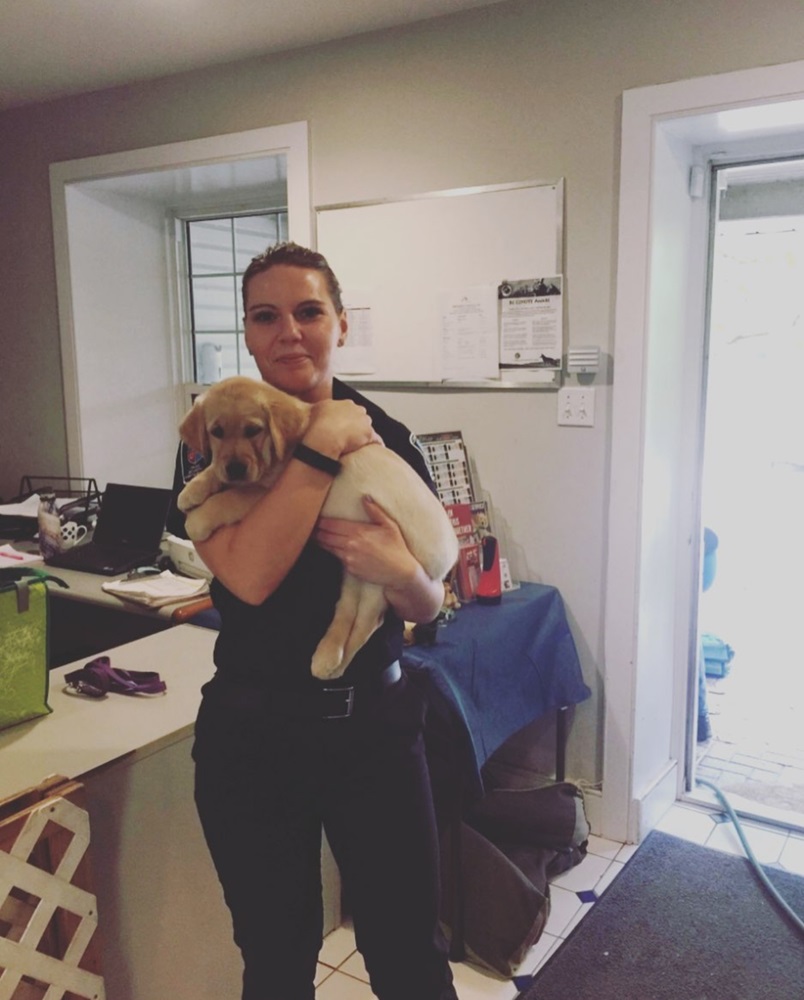Recent County transplants Ross and Jane Atkinson are threatening legal action against Dysart et al should council approve an application from a would-be entrepreneur wanting to set up a dog kennel on Carroll Road in Haliburton.
The file was discussed at a recent council meeting, with Monique Popp unveiling plans to establish a doggy daycare and overnight service on her home property. She’s seeking approval for up to 25 pets during the day and 12 at night.
Speaking to The Highlander this week, Popp believes her business proposal is a win for the Haliburton community.
“People are excited to hear we want to bring a kennel here. We don’t have enough of them in our area, unfortunately,” Popp said. “Since I moved here in 2020, I have had seven different dogs roam onto my property. The timing is usually early spring, or the end of fall and when I find the owners, they say they had the dog on a leash, or in the cottage and they got out or away while they were opening or closing for the season… I’ve always thought if there were kennels around, their dogs would be safe and it would eliminate the problem.”
Popp told council several neighbours are in favour of the idea. To proceed, she’s seeking a zoning exemption to allow her to retrofit an existing outbuilding into a kennel.
An application was deferred Jan. 28, with Dysart planner Kris Orsan saying the township is waiting for a site plan outlining the location of the building, which he said could be a maximum of 74.3 sq. metres. He said staff also need to confirm the intended use.
Popp, who has spent her entire career caring for dogs, including three years as a trainer with Ontario Service Dogs, said there will be options for short-term and long-term boarding, as well as daily daycare. Her proposed hours for daycare are 8 a.m. to 6 p.m., with two designated drop-off times. She’s aiming to open the business for the May 24 weekend.
Neighbour worried about barking
The Atkinsons, who purchased their property last year, say establishing a kennel on the “quiet residential road” would have a significant impact on them. Ross said his home is approximately 220 metres away from Popp’s.
“Our bedrooms are facing the proposed kennel area – we’d hear barking early every morning that would [likely] continue throughout the day… we wouldn’t be able to sit out on our deck at night without [hearing the barking],” Ross said.
“We are not trying to be bad neighbours, but this is going to impact the enjoyment of our property for sure. Unless the applicant comes up with great ways of eliminating the noise, perhaps covering the whole yard, I’m not sure [what could be done],” he added.
Atkinson said he recently completed sound testing at his property, with recordings ranging from 20 to 35 decibels. He claims a dog’s bark typically ranges between 80 and 122 decibels, believing dogs will be more stressed when housed at a kennel – away from their owners – and therefore louder.
Popp said she is planning to install a twometre-high fence surrounding the kennel kitted with noise cancelling buffers. The building will have high-quality insulation and acoustic baffles to mitigate noise. She also intends to fit speakers to play classical music to reduce dogs’ stress levels.
She added all dog waste will be handled on-site with a digester that breaks it down without it seeping into the soil, which she claims will also eliminate any smell.
While coun. Pat Casey suggested Dysart seek a professional opinion on how to proceed, Atkinson feels the township’s existing bylaws point to a simple path. He claims legislation outlining rules for the keeping and control of dogs prohibits any person who owns, or is in the care or custody of one, shall not allow the animals to excessively howl, bark, or otherwise become a nuisance.
“One thing about noise is it’s very easily measured and recorded. We’ll have a very good case when we complain… the second step would be civil action,” Atkinson said, noting there’s legal precedent for noise from dogs constituting nuisance under common law.
He said if they were to sell their property, he estimates losses of between $50,000 and $100,000. “So, we’ll spend the time to make the effort to stop this.”
A decision is expected in the spring.





